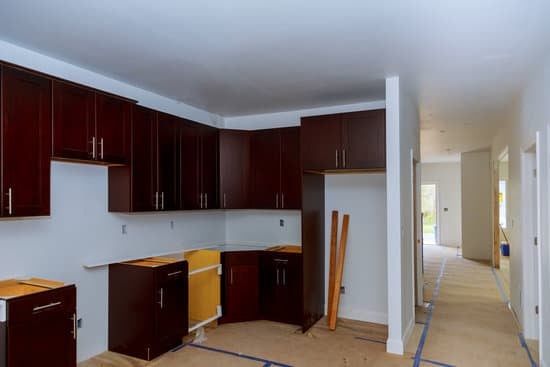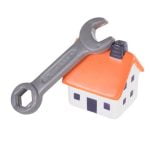Home improvement projects can be a significant undertaking, both in terms of time and money. But before you dismiss the idea entirely, it’s crucial to understand the importance of considering home improvements.
Not only can they enhance the functionality and appearance of your property, but they can also have a substantial impact on its overall value. In this article, we will explore the benefits of home improvements and guide you through the process of making an informed decision regarding whether or not to proceed with them.
Your home is more than just a place to live; it’s one of your most significant investments. Home improvements matter because they not only upgrade your living space but also increase the value of your property. Whether you’re looking to sell your home in the near future or simply want to enjoy a better quality of life while you’re still there, investing in home improvements can be highly beneficial.
Before diving into any home improvement projects, it’s essential to evaluate the current condition of your home. Assessing its overall functionality and appearance will help in identifying areas that need improvement. By doing so, you can prioritize projects based on urgency and align them with your goals for enhancing your living space.
Determining whether or not to do home improvements also requires weighing the financial implications involved. Conducting a cost analysis helps calculate potential return on investment and consider budget considerations and potential cost savings along the way. This information will allow you to make an informed decision about which projects are feasible and realistic for your situation.
Evaluating the Current Condition of Your Home
Assessing your home’s overall functionality and appearance
Before deciding on whether or not to do home improvements, it is crucial to evaluate the current condition of your home. Start by assessing the overall functionality and appearance of your property. Consider how well your home meets your needs and if there are any areas that are lacking or not functioning optimally.
Take a walkthrough of each room in your house and observe any signs of wear and tear, damage, or outdated features. Notice if there are any functional issues such as plumbing problems, electrical hazards, or safety concerns that need attention. Additionally, take note of any aesthetic flaws like peeling paint, stained carpets, or outdated fixtures.
Identifying areas that need improvement
Once you have assessed the condition of your home, make a list of areas that require improvement. This could include anything from minor repairs to major upgrades. It is important to prioritize these areas based on their urgency and impact they have on the overall quality of your living space.
Consider the aspects that affect daily living experience the most such as the kitchen, bathroom, bedrooms, and common areas. These spaces tend to be where you spend most of your time and should be a priority for renovation or improvement if needed. Also, pay attention to potential safety hazards that may require immediate attention to ensure the well-being of you and your family.
Considering the potential benefits of upgrading or renovating
After identifying areas that need improvement in your home, it is important to consider the potential benefits that upgrading or renovating can bring. Home improvements can enhance both the functionality and aesthetics of your property.
By improving the functionality of crucial areas such as bathrooms or kitchens, you can make daily tasks more efficient and enjoyable. Updating outdated features can also increase comfort levels throughout your home. Additionally, making aesthetic improvements can significantly enhance the overall visual appeal which not only creates a more pleasant living environment but also adds value to your property.
Cost Analysis
When considering home improvements, it is crucial to conduct a thorough cost analysis to weigh the pros and cons. Home improvements can have significant financial implications, so it’s essential to evaluate whether the benefits outweigh the expenses. This section will guide you through examining the financial aspects of home improvements, calculating potential return on investment, and considering budget considerations and potential cost savings.
One of the first steps in conducting a cost analysis is examining the financial implications of home improvements. Start by determining your budget for the project and researching the estimated costs of materials, labor, and any additional expenses such as permits or professional fees. Make sure to account for unexpected costs that may arise during the project.
Calculating the potential return on investment (ROI) is another critical aspect of cost analysis when it comes to home improvements. Different projects can have varying impacts on property value, so it’s essential to consider which upgrades offer the best ROI.
For example, kitchen renovations and bathroom remodels often yield high returns compared to other projects. Consult real estate professionals or do research in your area to understand which upgrades are in demand and likely to increase your home’s value.
Additionally, consider your budget and see if there are any potential cost savings you can make without compromising quality or safety. Look for opportunities like discounts on materials or appliances or choosing less expensive alternatives that still meet your needs. However, be cautious not to sacrifice quality for cost savings, as poorly executed projects may end up costing more in repairs or replacement down the line.
Prioritizing Your Home Improvement Projects
Now that you have evaluated the current condition of your home and considered the potential benefits of upgrading or renovating, it’s time to prioritize your home improvement projects. This step is crucial in ensuring that you allocate your resources wisely and tackle the most important areas first. Here are some tips to help you prioritize:
- Identify high-priority projects: Start by identifying which home improvement projects are most urgent and cannot wait. These could be repairs or upgrades that impact the safety, functionality, or livability of your home. For example, if your roof is leaking or your electrical system is outdated, these would be high-priority projects that should be addressed immediately.
- Consider the urgency: Next, consider the urgency of certain repairs or upgrades based on their potential consequences if left unresolved. Evaluate the risks and potential damage that could occur if a particular project is not addressed promptly. This will help you determine which projects need to be prioritized over others.
- Align goals with current state: Lastly, align your goals with the current state of your home. Consider how each project fits into your overall vision for your home and how it aligns with your long-term plans.
For example, if you plan on selling your home in the near future, focus on improvements that will enhance its resale value. On the other hand, if you plan on staying in your home for a long time, prioritize projects that will improve your comfort and quality of life.
To assist with prioritization, creating a list can be helpful:
- Roof repairs or replacements.
- Electrical system upgrades.
- Plumbing repairs.
- Structural repairs.
- HVAC system maintenance or replacements.
By prioritizing your home improvement projects effectively, you can ensure that you address the most critical needs first while considering both short-term and long-term goals for your home.
Remember to always budget accordingly for each project and leave room for unexpected expenses that may arise during construction or renovation processes.
DIY vs. Professional Help
Evaluating your DIY skills and level of expertise
When considering home improvements, one of the first factors to take into account is your own DIY skills and level of expertise. Some people are naturally more inclined and skilled at tackling home improvement projects themselves, while others may be more comfortable leaving it to the professionals. Taking an honest inventory of your abilities can help guide you in making the right choice.
Start by assessing the complexity of the project you have in mind. If it involves basic repairs or simple upgrades that you have experience with, such as painting walls or changing a faucet, then doing it yourself might be a viable option. On the other hand, if the task involves intricate electrical work or complex construction, it’s generally best to seek professional help to avoid any potential safety hazards or costly mistakes.
Weighing the benefits and drawbacks of hiring professionals
There are several advantages to hiring professionals for your home improvement projects. First and foremost, they bring years of specialized knowledge and experience to ensure high-quality workmanship. They also often have access to better tools and equipment necessary for more complex tasks.
Additionally, professionals can save you valuable time and effort. Home improvement projects can be time-consuming, especially if you’re juggling them alongside other responsibilities such as work or family commitments. Hiring experts means that you can focus on other aspects of your life while leaving them to handle the project efficiently.
However, there are also drawbacks to consider when hiring professionals. One major factor is cost – hiring skilled labor comes with a price tag. You’ll need to weigh the financial implications against your budget. Additionally, relying on professionals means placing trust in their ability to execute your vision for your home accurately.
Determining which tasks you can tackle on your own and which require professional assistance
Ultimately, striking a balance between DIY projects and professional assistance is often the most realistic approach. Some home improvement tasks lend themselves well to DIY, while others are better left to the experts.
For example, painting walls, assembling furniture, or installing shelves are relatively easy tasks that can be done yourself with minimal risk. However, electrical work, plumbing repairs, or major structural changes should generally be left to professionals who have the necessary skills and knowledge to ensure safety and compliance with building codes.
When determining which tasks you can handle on your own and which require professional assistance, it’s always a good idea to consult with experts or seek advice from knowledgeable friends or family members. They can provide insight into the level of difficulty and help you make an informed decision about the best course of action for your specific home improvement project.
Boosting Property Value through Strategic Upgrades
When considering home improvements, one of the key factors to take into account is how it can impact the value of your property. Strategic upgrades can significantly boost the value of your home and provide a solid return on investment. By understanding which improvements have the highest impact on property value, you can make informed decisions about where to focus your efforts.
One key area to consider when looking to increase property value is the kitchen. A well-designed and updated kitchen not only enhances the overall appeal of a home but also has a high resale value. According to Remodeling Magazine’s Cost vs. Value Report, a minor kitchen remodel typically recoups over 80% of its cost upon resale. Upgrading appliances, countertops, cabinets, and lighting are all popular projects that can contribute to a higher home value.
Another strategic upgrade with significant potential for boosting property value is improving curb appeal. First impressions matter, and enhancing the exterior appearance of your home can greatly impact its value. This can include landscaping enhancements such as adding plantings or hardscaping features like walkways or patios. Additionally, repainting or replacing front doors and windows, as well as maintaining a well-maintained lawn and garden, can all contribute to increasing your home’s curb appeal.
In addition to these specific upgrades, it is also essential to consider other factors that potential buyers may prioritize when valuing a property. These may include energy efficiency features like insulation upgrades or installing solar panels, as well as updated bathrooms or additional living spaces like finished basements or attic conversions.
By strategically choosing which upgrades to focus on, homeowners can maximize their investment in home improvements while simultaneously increasing their property’s value. It is important to do thorough research and seek professional advice when planning renovations in order to make informed decisions that align with both personal preferences and market demands.
| Strategic Upgrades | Impact on Property Value |
|---|---|
| Kitchen remodel | High resale value, over 80% cost recouped upon resale |
| Curb appeal enhancements | Significantly impact home value and create a great first impression |
| Energy efficiency features | Increase property value and attract eco-conscious buyers |
| Bathroom upgrades or additional living spaces | Appeal to potential buyers looking for modern amenities and extra space |
The Emotional Value of Home Improvements
Home improvements not only have a tangible impact on property value, but they also offer intangible benefits that greatly enhance your living space and overall well-being. Investing in home improvements can create a more comfortable and enjoyable environment for you and your family, ultimately contributing to your happiness and emotional satisfaction.
One of the main advantages of doing home improvements is the ability to tailor your living space to your specific needs and preferences. Whether it’s creating an open concept floor plan that promotes better flow and interaction among family members or adding a private office or study area for increased productivity, home improvements allow you to transform your house into a personalized haven that aligns with your lifestyle.
Furthermore, home improvements can significantly improve the ambiance and aesthetics of your home, making it more inviting and visually pleasing. Upgrading outdated fixtures, installing modern lighting systems, or repainting walls in vibrant colors can breathe new life into any space. These small changes can have a big impact on how you feel when you walk through the door each day.
To illustrate the emotional value of home improvements, studies have shown that individuals who are satisfied with their living conditions experience higher levels of overall happiness. According to a survey conducted by the Royal Institute of British Architects (RIBA), people who live in well-designed homes were found to be happier, healthier, and more productive than those who live in poorly designed spaces. This highlights the profound influence that our physical environments have on our mental well-being.
Investing in home improvements not only enhances your quality of life but also allows you to create lasting memories with family and loved ones. By creating functional outdoor living spaces like patios or decks or adding features like fire pits or swimming pools, you can foster opportunities for relaxation, entertainment, and bonding experiences with friends and family right at home.
| Benefits of Home Improvements | Data |
|---|---|
| Improved quality of life | Enhanced mental well-being |
| Personalized living space | Increase in overall happiness |
| Create lasting memories with loved ones | Promotion of relaxation and bonding experiences |
Home Improvements for Energy Efficiency and Sustainability
In today’s world, there is a growing emphasis on the importance of sustainability and reducing our carbon footprint. As such, one of the key considerations when deciding whether or not to embark on home improvements is how they can contribute to energy efficiency and sustainability. This section will explore the benefits of eco-friendly upgrades, provide insights into energy-saving solutions, and discuss how these improvements can lead to both environmental and financial advantages.
Addressing the growing importance of eco-friendly upgrades is crucial for homeowners who want to make a positive impact on the environment. By opting for energy-efficient appliances, lighting fixtures, HVAC systems, and insulation materials, you can significantly reduce your household’s energy consumption.
This not only helps in conserving natural resources but also decreases emissions that contribute to climate change. Additionally, sustainable home improvements promote resource efficiency by using materials that have a reduced impact on the environment during production and disposal.
Exploring energy-saving solutions is another aspect of home improvements for energy efficiency and sustainability. For instance, installing solar panels can harness renewable energy from the sun to power your home and even potentially generate excess electricity that can be sold back to the grid. Investing in energy-efficient windows and doors can also prevent heat loss during winter months while keeping your home cool in the summer, leading to substantial savings on utility bills.
One of the major benefits of making eco-friendly home improvements lies in long-term cost savings. While some sustainable upgrades may require an initial investment, they often result in significant reductions in energy expenses over time. In addition to lowering utility bills, these improvements could also increase your property value by making your home more attractive to potential buyers who prioritize sustainability.
By considering home improvements with a focus on energy efficiency and sustainability, homeowners have an opportunity to reduce their environmental impact while enjoying financial benefits. Whether it’s through adopting renewable sources of energy or implementing measures that conserve resources, these upgrades contribute towards creating a greener future for our planet while also reducing operating costs.
So, if you are passionate about sustainability and want to make a positive difference, home improvements in energy efficiency should be high on your priority list.
Conclusion
In conclusion, making the decision to do home improvements requires careful consideration and evaluation of several key factors. Throughout this article, we have explored the importance of considering home improvements, evaluating the current condition of your home, conducting a cost analysis, prioritizing projects, choosing between DIY and professional help, boosting property value through strategic upgrades, recognizing the emotional value of improvements, and implementing energy-efficient and sustainable solutions.
Before embarking on any home improvement project, it is crucial to research and plan accordingly. By assessing your home’s functionality and appearance, identifying areas that need improvement, and considering potential benefits of upgrading or renovating, you can make informed decisions about which projects are worth pursuing. It is also important to evaluate the financial implications of these improvements by examining potential return on investment and factoring in budget considerations.
Additionally, prioritize projects based on urgency and align your goals with the current state of your home. Some repairs or upgrades may be more time-sensitive than others and require immediate attention. Therefore, it is essential to carefully assess which projects should take precedence.
Considering whether to tackle improvements yourself or hire professionals is another critical aspect of making an informed decision. This will depend on your DIY skills and level of expertise as well as the benefits and drawbacks associated with professional help. While some tasks may be suitable for a DIY approach, others may require specialized knowledge or equipment that only professionals possess.
Furthermore, it is worth exploring how certain upgrades can substantially boost property value. Understanding which home improvements have the highest impact on property value will allow you to prioritize projects strategically. Thus, it is advisable to invest in upgrades that offer a higher return on investment.
However, aside from financial considerations, there are also intangible benefits to enhancing your living space. Home improvements can create a more comfortable and enjoyable environment that contributes to your overall happiness and well-being. Furthermore, eco-friendly upgrades can reduce your carbon footprint while saving on utility bills.
In making an informed decision about home improvements, it is crucial to take into account all the factors discussed throughout this article. By conducting thorough research, careful planning, and prioritizing projects based on your specific needs and goals, you can ensure that any improvements you undertake will be worthwhile. Ultimately, whether or not to proceed with home improvements depends on your desired outcomes and the current state of your home.
Frequently Asked Questions
Will renovation costs go down in 2023?
It is challenging to predict with certainty whether renovation costs will go down in 2023. Various factors influence the cost of renovations, such as material prices, labor costs, and market demand. While there is a possibility that certain expenses might decrease, it is equally possible that other factors could contribute to an increase in renovation costs.
Economic conditions and trends within the construction industry will heavily impact these costs. My advice would be to stay updated on market developments and consult with contractors or renovation professionals who can provide accurate insights closer to the desired renovation timeline.
Is 2023 a good time to renovate?
Deciding whether 2023 is a good time to renovate depends on various considerations specific to your personal circumstances. One aspect to evaluate is the overall economic climate during that period. If the real estate market is stable and experiencing growth, renovating may lead to increased property value.
Additionally, if you have specific renovations in mind and are able to secure favorable loan terms or financing options during this time, it may make financial sense to proceed with renovations in 2023. However, it is crucial to carefully assess your budget, obtain multiple quotes from contractors for better pricing comparison; weigh any potential disruptions alongside anticipated benefits before making a final decision.
Is a recession a good time to renovate a house?
While a recession might initially seem like an opportune time for renovating a house due to potential lower labor costs and reduced demand within the construction market, it is essential to consider the broader economic context before making any decisions. During a recession, uncertainty looms over employment stability and income levels for many individuals. Renovations often require substantial financial resources which may not be readily available during an economic downturn.
Moreover, access to credit or loans might become more limited or come with higher interest rates during these periods. Therefore, individuals should carefully evaluate their own financial situation and priorities before embarking on home renovations during a recession, ensuring they have sufficient resources available while considering potential risks associated with reduced economic activity and uncertainty in the market.

I’m thrilled to have you here as a part of the Remodeling Top community. This is where my journey as an architect and remodeling enthusiast intersects with your passion for transforming houses into dream homes.





